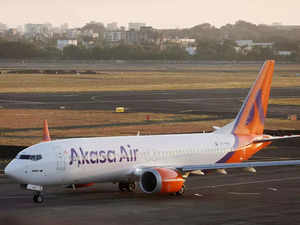 Agencies
AgenciesBudget with ET
Bilaterals with several key destinations for Indians like Dubai, Sharjah, Ras Al-Khaimah and Qatar are either fully or almost fully exhausted, making it difficult for new airlines like Akasa to stat flights or those who who already do so to add frequencies.
Bilateral agreements are pacts signed between two countries, defining the terms for designated carriers of each nation to operate flights. These agreements also involve scrutiny of the substantial ownership and effective control (SOEC) of foreign airlines wishing to operate within a given country. Some European airlines, like Swiss and Austrian, have a unique position in these agreements due to their effective control and ownership by Germany's Lufthansa. Notably, Lufthansa is expanding its influence by taking a stake in Italy's ITA, the successor of bankrupt Alitalia.
Akasa has been plagued by a pilot exodus, leading to the airline having to take legal action and seek the intervention of the Directorate General of Civil Aviation (DGCA). Akasa currently operates a fleet of 20 aircraft. Its eligibility to fly abroad is based on the amended 0/20 rule, which permits Indian carriers to do so once they have a minimum of 20 aircraft in their fleet, with no restrictions on the number of years in operation. This represents a change from the previous 5/20 rule, which mandated a minimum of five years in operation.
Read More News on
(Catch all the Business News, Breaking News, Budget 2024 Events and Latest News Updates on The Economic Times.)
Subscribe to The Economic Times Prime and read the ET ePaper online.


























































 Get Unlimited Access to The Economic Times
Get Unlimited Access to The Economic Times
